Essential Japanese Vocabulary For The Playground
How To Keep The Peace And Make New Friends
What can you say to calm a kerfuffle on the slide? To show other parents that you're not letting your child run amok? Learn these handy Japanese phrases to smooth out your interactions at the playground or wherever young kids play.
Playgrounds, playrooms and anywhere that children run around are great places to make friends, but they can also be intimidating when you have a language barrier. What can you say to other children who are a little too rowdy? What should your child say if they accidentally run into another? How can you encourage turn-taking? A few simple phrases can help with most tricky situations. There are lots of benefits to learning a bit of Japanese vocabulary for the playground!
Help Children Build Social Capabilities
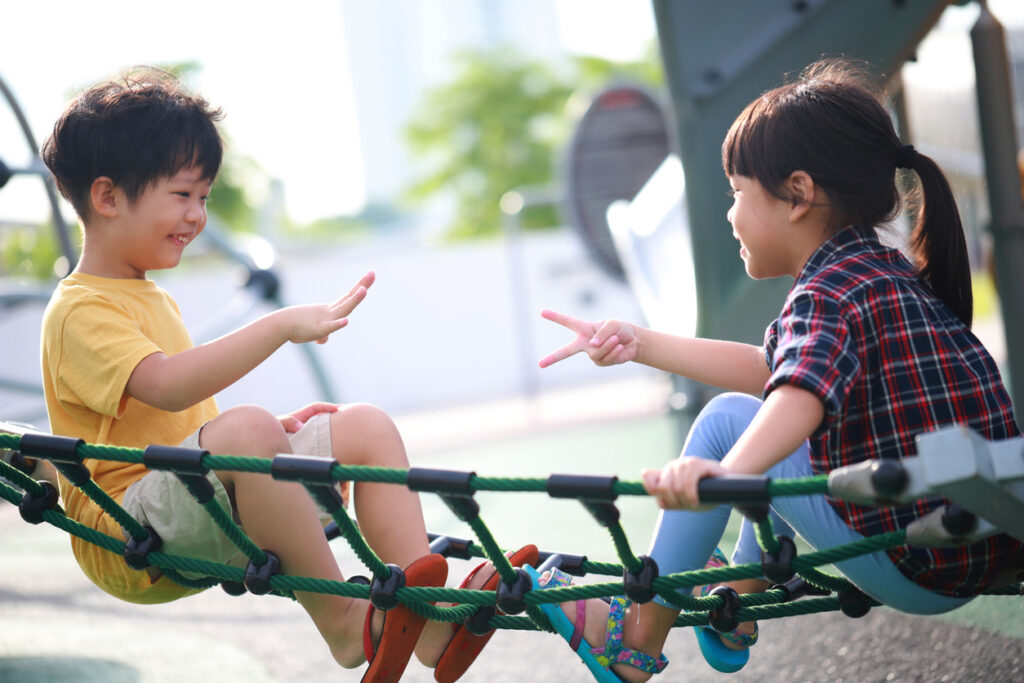 © Photo by iStock: tylim
© Photo by iStock: tylimEspecially valued in Japan, skills for getting along with others are essential to child development. My two-year-old son is at the perfect age to start learning from social interactions. Casual, outdoor settings such as a playground are now our best bet for friend-making but I have noticed that some Japanese caregivers and children appear to be uncertain of how to communicate with someone visibly “foreign” like me.
I have had success in breaking the ice by proactively saying a few words in Japanese to signal that I understand the language at least a little, making people around us more comfortable to engage further. Since my son isn’t talking much yet, I take the opportunity to narrate what he might say to others, such as greetings or basic niceties like どうぞ (dōzo; “please go ahead”) and ありがとう(arigatō, “thank you”). In addition to showing others that we can interact in Japanese, this also helps my son to start picking up the most important social customs.
To “Perform” Parenting
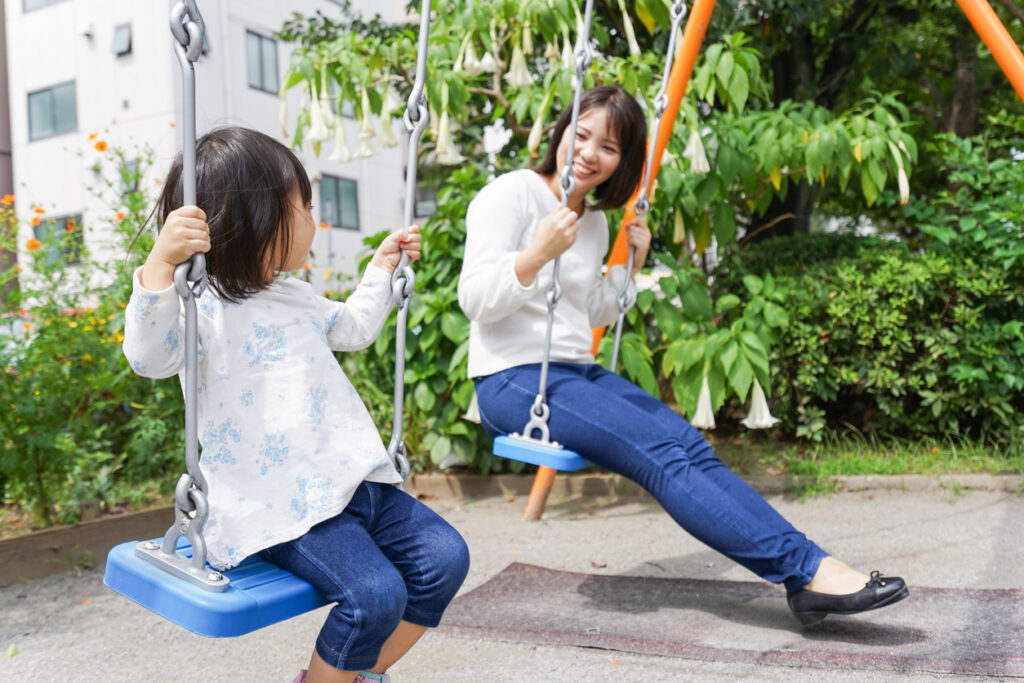 © Photo by iStock: maroke
© Photo by iStock: marokeAlthough I’m not an authoritarian parent, as a non-Japanese mother who stands out in public, I feel a bit of unspoken social pressure to demonstrate to other caregivers that I’m directing my toddler’s behavior…or at least trying! This sometimes leads me to a little parenting “performance.”
I primarily speak English with my son, but around Japanese speakers, I often repeat my words in both languages. For example, if he cuts in the line for the slide, I say, “Let’s take turns! junban ne (順番ね)!” This is less natural than our normal interactions, but by sprinkling in some Japanese, I signal to other children and caregivers that I am, in fact, trying to right the wrong and being mindful of our shared environment as a responsible parent.
To Encourage Harmony
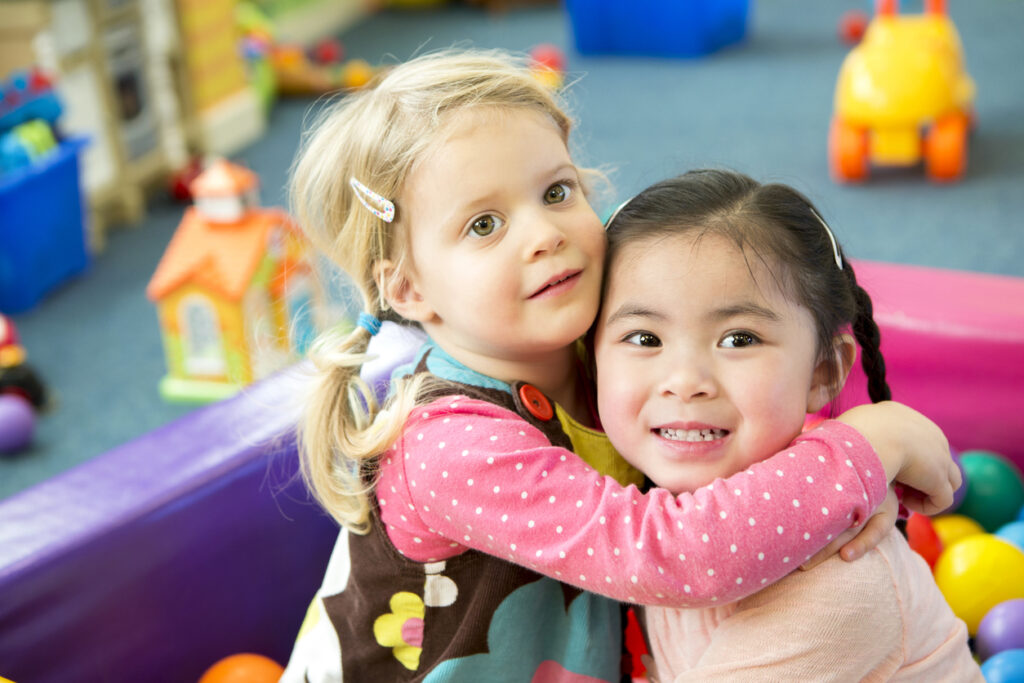 © Photo by iStock: SolStock
© Photo by iStock: SolStockAs in any country, Japanese caregivers have a range of approaches to raising children. Some parents like to be fully involved in playing with their children on the playground—which makes it easy to interact if you likewise stay close—and others tend to be more hands-off.
As the mother of one of the younger children on the playground, I occasionally need to caution older kids who are not mindful of littler ones. Be aware that some Japanese caregivers prefer to discipline their children privately, so it’s wise to avoid calling out other children’s behavior.
However, phrases like 気を付けて (ki wo tsukete; “be careful”), 危ない (abunai; “dangerous”) and だめ (dame; “not good”) are ubiquitous anywhere children are found and are usually quite acceptable to use with any children.
Like most people, I find it awkward to draw a distant parent’s attention to their kids’ behavior, but if necessary, a sentence like: すみません、危ないので注意して下さい (sumimasen, abunai no de chūishite kudasai; “excuse me, that’s dangerous so please caution them”) raises the issue without being pushy.
Basic Language For Children
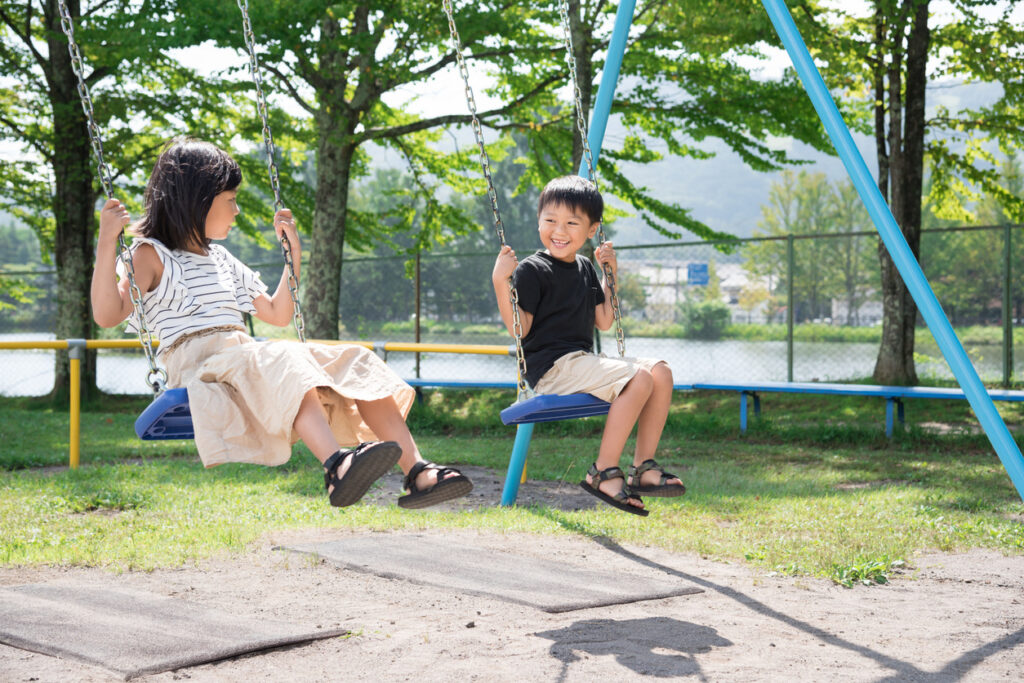 © Photo by iStock: TATSUSHI TAKADA
© Photo by iStock: TATSUSHI TAKADAThis isn’t the place for a full grammar lesson, but it’s worth pointing out that the polite grammatical forms typically taught in Japanese language classes aren’t necessarily the ones you use when addressing children.
For example, the polite question 一緒に遊びませんか (isshoni asobimasenka; “do you want to play together?”) can become simply 一緒に遊ぶ? (isshoni asobu?).
Also, adding ね (ne) to the end of some phrases increases the friendliness factor. So for example, the caution 気を付けて (ki o tsukete; “be careful”) becomes 気を付けてね (ki o tsukete ne) and is magically less strict. But the most important thing is to not worry too much about grammar and just be friendly.
Japanese Vocabulary For The Playground
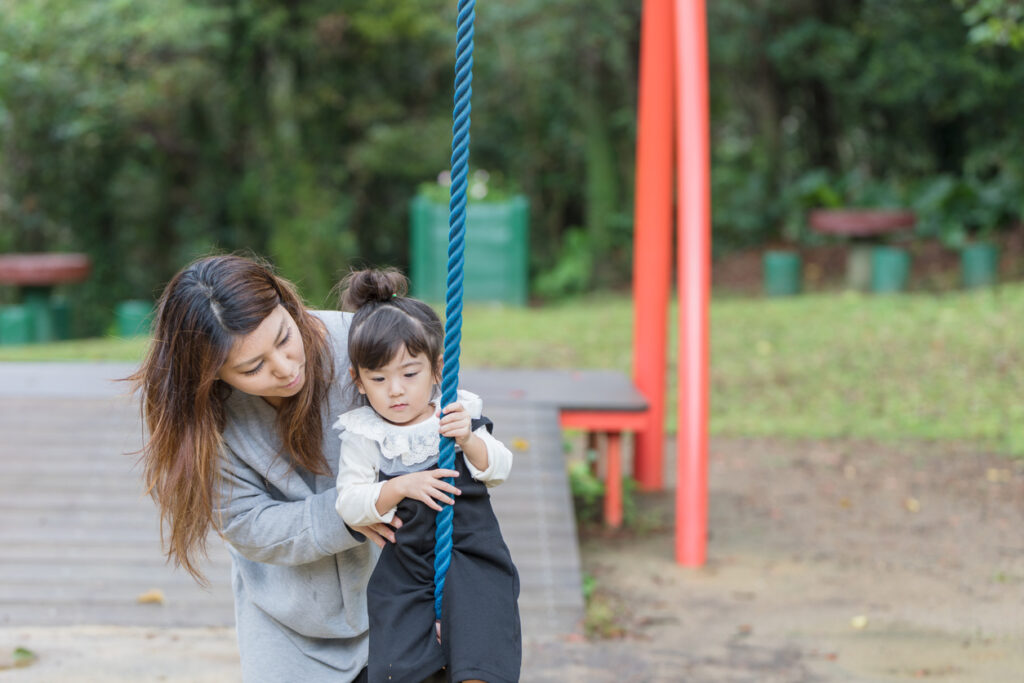 © Photo by iStock: imacoconut
© Photo by iStock: imacoconutIn addition to basic greetings like konnichiwa (こんにちは; “hello”) and parenting-related small talk, these phrases will help you open communication. The natural language of play can overcome barriers between children, and even the smallest efforts can help break the ice among adults.
Memorize a few of the phrases below to start interacting on the playground!
Common Words
| Japanese | Romaji | English | When To Use |
| (お)友達 | (o) tomodachi | Friend | To refer to other children. Adults can add “o” to refer to other people’s children in a more polite way. |
| 危ないよ | abunai yo | That’s dangerous! | To caution children from doing something dangerous. |
| だめ | dame | That’s not allowed/not good | Commonly heard on the playground for situations where caregivers might say “no” or “stop.” |
| 上手 | jōzu | Well done! Very good! | To praise a child, e.g., “Great job on the monkey bars!” |
| ありがとう | arigatō | Thank you! | Use early and often! |
| すみません | sumimasen | Excuse me | To get someone’s attention or to apologize for something minor. |
| ごめんなさい | gomen nasai | Pardon me/sorry | To apologize. |
| お兄ちゃん | onīchan | Older brother | To address any boy that seems to be older. |
| お姉ちゃん | onēchan | Older sister | To address any girl that seems to be older. |
| どうぞ | dōzo | Go ahead or here you go | Use for situations like, “sure, go ahead of us on the slide.” |
| 大丈夫? | daijōbu? | Are you ok? | To ask if someone or something is okay. |
| 大丈夫です | daijōbu desu | Yes, it’s/we’re ok. | To answer that it’s okay or you’re okay. |
| やめなさい | yamenasai | Stop that! | A rather forceful command—stereotypically used by parents. |
Phrases
| Japanese | Romaji | English | How To Use |
| 赤ちゃんだよ、気をつけてね | akachan dayo, ki o tsukete ne | That’s a baby, so be careful | To caution a child around a little one. |
| 押さないで、お友達だよ | osanaide, otomodachi da yo | Don’t push, that’s a friend | To explain to your child not to push their friends. |
| 気を付けてね | ki o tsukete ne | Please be careful | To advise caution gently. |
| 一緒に遊ぶ? | issho ni asobu? | Do you want to play together? | To invite another child to play or to share a toy. |
| 〇〇 言って | 〇〇 itte | Say 〇〇 | To tell your child to say something, often used to demonstrate social customs. |
| 投げないでね | nagenaide ne | Don’t throw (something) | To direct your child not to throw. |
| 順番ね 順番待ちましょう | junban ne junban machimashō | Take turns Let’s wait and take turns | To encourage children to take turns, or wait and take turns. |
| すみません、危ないので注意して下さい | sumimasen, abunai no de chūishite kudasai | Excuse me, that’s dangerous so please caution your child | To politely draw a parent’s attention to a problematic situation. |
Phrases in Action
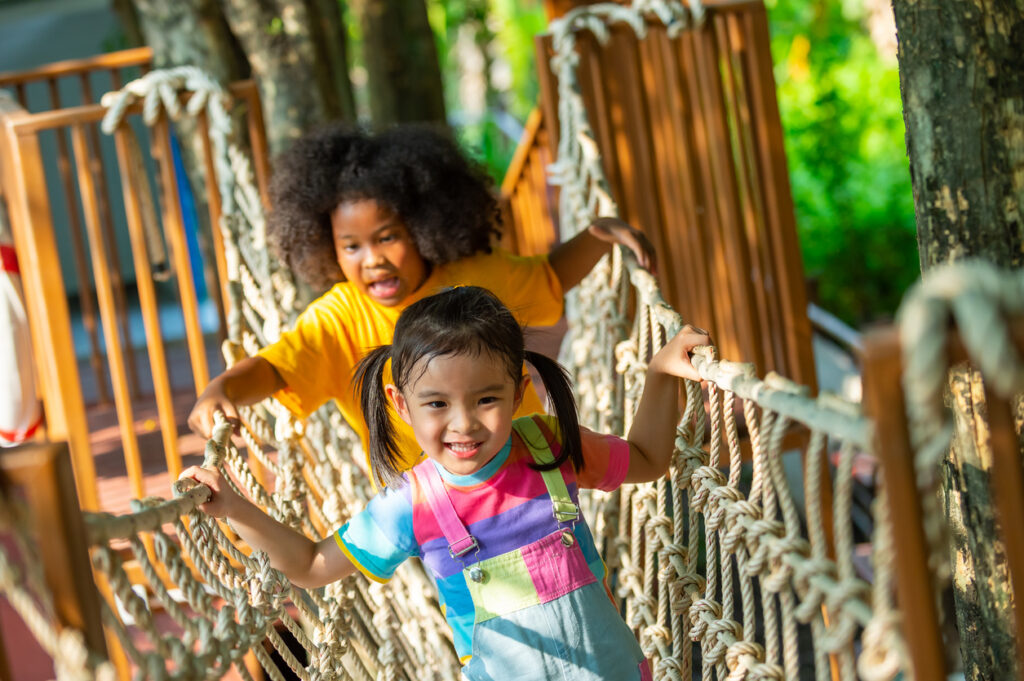 © Photo by iStock: CandyRetriever
© Photo by iStock: CandyRetrieverHere’s a sample dialogue between Megan and Yutaro along with their one-year-old toddlers on the playground.
Greetings:
Megan
- (to Yutaro and his child): こんにちは! (Konnichiha!; “Hello!”)
Yutaro
- (to his own child): こんにちは言って! (Konnichiha itte!; “Say hello!”)
- (to Megan and her child): 一緒に遊ぶ? (Isshoni asobu?; “Do you want to play together?”)
Megan’s Toddler Tries To Go In Front Of Yutaro’s To Climb The Slide:
Megan
- (to her own child): お友達だよ。順番ね。 (Otomadachidayo. Junban ne.; “That’s a friend. Let’s take turns.”)
Yutaro
- (to Megan and her child): 大丈夫です。どうぞ。 (Daijōbu desu. Dōzō.; “That’s ok. Please go ahead.”)
Megan
- (to Yutaro and his child): すみません。ありがとう。 (Sumimasen. Arigatō.; “Excuse us. Thank you.”)
Megan
- (to her child as he climbs): 気を付けてね! (Ki wo tsukete ne!; “Be careful!”)
Yutaro’s Child Throws A Pebble:
Yutaro
- (to his child): 危ない! 投げないでね。 (Abunai! Nagenaide ne.; “That’s dangerous! Don’t throw!”)
Yutaro’s Child Goes Down The Slide:
Megan
- (to Yutaro and his child): 上手! (Jōzu!; “Very good!”)
If you have any other useful Japanese vocabulary or phrases for the playground, let us know!











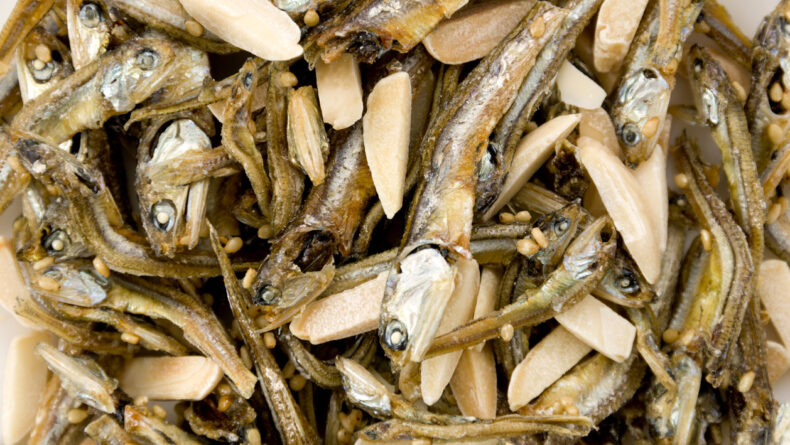
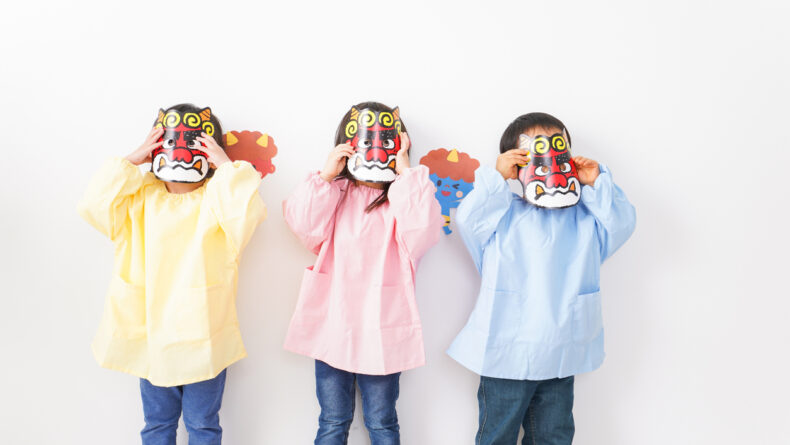

Great content! Thank you very much!
I am an adult. But , i am learning this valuable language. Your examples are very useful not only to me , but for all . Thankyouvery much for uploading this valuable lessons.
I am teaching my 1.5 year old daughter and 9 year old son Japanese. I love that you included explanations and reasons to certain phrases as well as provided examples! This was extremely helpful thank you so much I appreciate it!